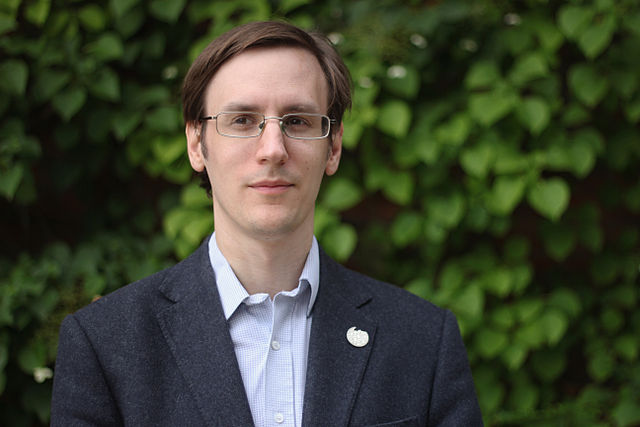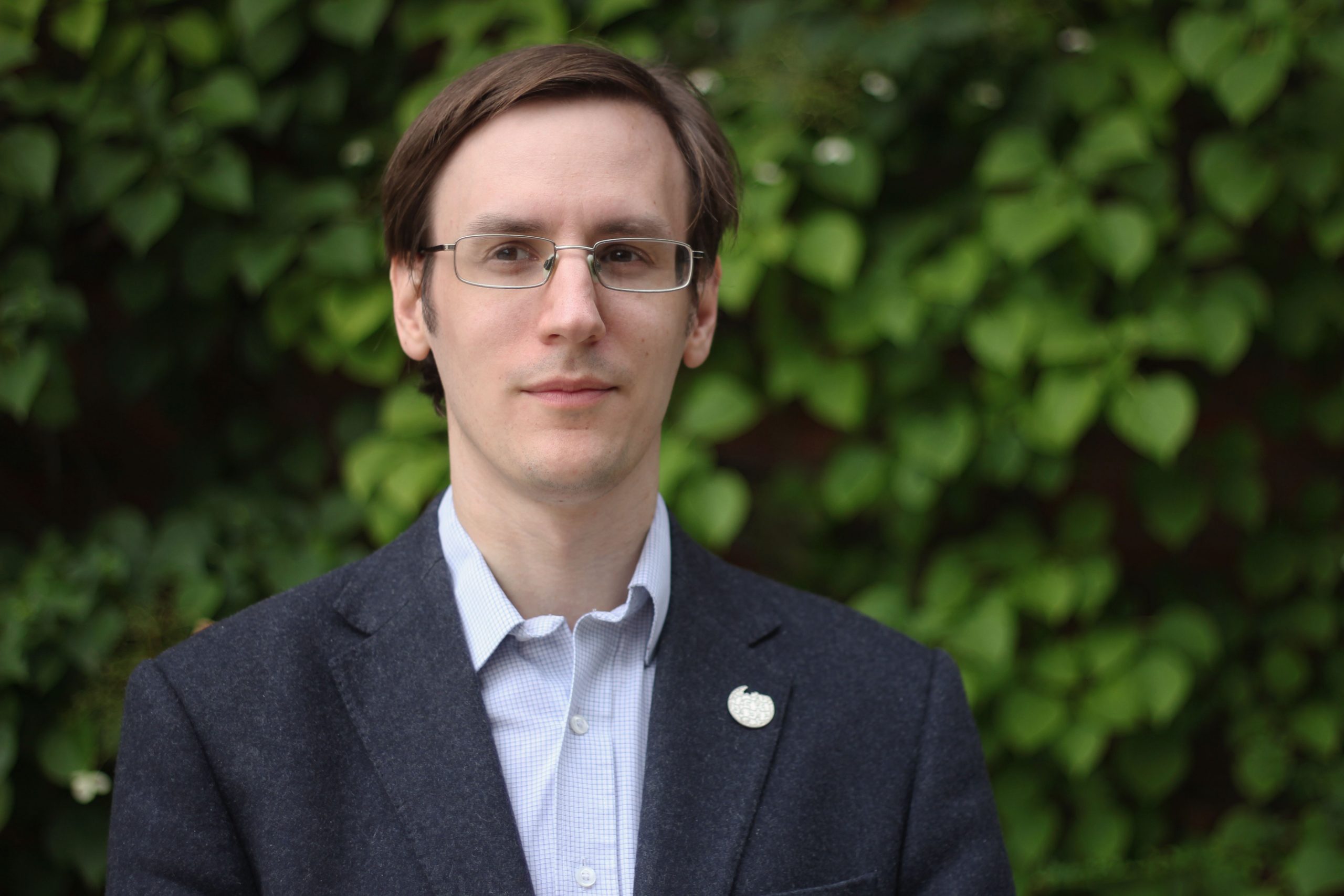This post was written by Joe Sutherland

Photo: User:Rock drum, CC-BY-SA 4.0
Andrew Gray is a long-time Wikipedian. Having joined in late 2004, while the project was in its infancy, his personal account has racked up almost 50,000 edits.
He is also a librarian by trade, working at the British Antarctic Survey in Cambridge, and holds a Master’s degree in Library and Information Science from the Robert Gordon University in Aberdeen.
He was then a perfect match for the Wikipedian-in-Residence role at the British Library, a post he held between May 2012 and April 2013.
“The British Library was engaged in a large-scale programme of helping train its curatorial staff to support new ways of working, new audiences, both from a perspective of being open and of being digital,” he explains.
He was involved in a large number of training workshops for British Library staff, as well as having a hand in promoting openness in the organisation, in particular with regards to its content.
“We ran about twenty workshops for eighty library staff,” he recalls. “Outside the library, working with various universities and other institutions, we ran a further forty or so workshops for around 150 attendees. These covered researchers, members of the general public, as well as librarians and library support staff.”
Closing gaps in coverage was a big part of Andrew’s role at the British Library. The first event held under his guidance was an editathon focused around non-Western troops in Europe during World War I.
“We had a number of productive discussions at the event, with Wikipedians and with people actively involved with curating the heritage of the First World War,” he says. “We were able to point out a number of problems in our existing coverage, and discussed ways to try and solve those issues.”
“We were able to focus on non-Western topics as most major topics are already well-covered, and in some cases there is systematically very good coverage across a wide section of that topic.”
He was also involved in events in partnership the International Dunhuang Project (IDP), which aims to digitise materials found in Dunhuang and other archaeological sites near the Chinese end of the Silk Road. It also covers ancient Buddhist sites in the Taklamakan Desert in north-western China and Tibet.
“The project was very keen to do some work with Wikipedia as the multilingual nature of the project fits very closely with what the IDP is trying to do,” he says.
He arranged a editing workshop over several days at the library as part of a broader conference of IDP events in 2012. “We brought in volunteers from Wikipedia, staff from the project itself, and some students and academics from related institutions in London,” he adds. “Over the course of four days we worked on a wide range of articles around the general topic.”
He feels the event helped to improve Wikipedia’s presentation of the topic overall. “Wikipedia’s coverage of central Asian history, as might be expected, is somewhat patchy,” he says. “The work that the IDP did was to help fill in some of the missing gaps.”
“Thanks to the work of one particular volunteer working with some academics, we were able to pull together a list of all the significant archaeological sites in the region, and help identify what we had articles on, what we didn’t, and what we needed to focus on trying to cover.”
The Darwin Correspondence Project was another project he got involved with in his time as Wikipedian in Residence. The undertaking was funded by the Arts and Humanities Research Council and based at the University Library of Cambridge.
“It’s a programme to digitise and make available the letters and correspondence of Charles Darwin. As part of this, the project team have been producing, essentially, a comprehensive biography of everyone Darwin corresponded with.
“Darwin being Darwin, this is essentially a list of everyone who was active in science in Victorian Britain. He was exceptionally prolific — there are letters in the collection from people as unexpected as Karl Marx.”
The project selected several people of historical significance, who weren’t otherwise well-covered by modern literature, and researched them. With several volunteers at the university library, Andrew helped work on Wikipedia biographies based on existing research.
“It was a very productive way of capturing the research that was already being done for the correspondence project,” he adds. “It means this work could reach a broader audience, rather than simply being included in the critical apparatus to a broader project where it might not get so much attention.”
Andrew believes that libraries and Wikipedia are a perfect match for one another, since their goals are one and the same. “We’re in the same business,” he says.
“As a librarian, my job is to try and get knowledge to people who need it, as they need it, when they need it. Wikipedia is in many ways doing the same thing — we are supporting people who are looking for knowledge at their own pace, in their own context… We’re trying to provide that knowledge neutrally, evenly, and without a limit on who we give it to.”
“We don’t want to be the be-all and end-all of knowledge,” he adds. “We want to be able to refer people onwards, to more material, and libraries are the natural place for that.”
- For more on The GLAM-Wiki Revolution, visit the project page, or find out more about the British Library Wikimedian in Residence project.






